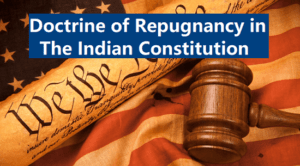Madras High Court Evokes Doctrine of Approbate & Reprobate, Holds a Party Can’t Take Contradictory Stands in Different Courts
Case: Mr.G.Nagaiyan & Anr. v. Mr. K. Palanivel
Coram: Justice N. Anand Venkatesh
Case No.: Second Appeal No.125 of 2014 and MP.1 of 2014 and CMP No.3572 of 2022
Court Observation: “… By virtue of this Decree, the respondent has given up his rights and title over the property that was purchased by him under Ex.B3 [sale deed involving vendor Dayalan]. Under such circumstances, it will not be open to the respondent to take a completely contrary stand as if the property was not acquired by the Government and he continues to be the owner of the property. This is where the principle of approbate and reprobate comes into play.”
“A person cannot be allowed to have the benefit of an instrument while questioning the same. Such a party either has to affirm or disaffirm the transaction. This principle has to be applied with more vigour as a common law principle, if such a party actually enjoys the one part fully and on near completion of the said enjoyment, thereafter questions the other part. An element of fair play is inbuilt in this principle. It is also a species of estoppel dealing with the conduct of a party.”
“There is no requirement for this Court to undertake the exercise of finding out how much of property was acquired and how much was left out by the Government. This is in view of the fact that the respondent went before the competent Civil Court and obtained a Decree on the ground that no right or title was conveyed to him under the sale deed dated 27.8.1974 marked as Ex.B3. This crucial fact was lost sight of by both the Courts below and both the Courts unnecessarily undertook the exercise of finding out the ownership of the respondent over the ‘C’ schedule property”
“Insofar as the right claimed by the respondent in the property acquired through Ex.B3 sale deed and the construction put up by him in the said property is concerned, it is for the Government and the Housing Board to initiate appropriate action”
“Both the Courts below on analysing the oral and documentary evidence, have given a categorical finding that there is no evidence to hold that a portion of the property has been constructed in the ‘A’ and ‘B’ schedule properties and that the respondent has caused obstruction to the access of the appellant for the convenient enjoyment of ‘A’ and ‘B’ schedule properties. At every stage, the appellants have attempted to improve their case and only at the appellate stage, the appellants came up with the plea that the building constructed by the respondent is obstructing their pathway right”
Previous Posts
No One Can Be Permitted to Take the Benefit of a Wrong Order Passed By A Court: Supreme Court
Supreme Court Bars Charging Compound Interest Or Penal Interest On Any Borrower During Loan Moratorium; Refuses Moratorium Extension Download Judgement
No One Can Be Permitted to Take the Benefit of a Wrong Order Passed By A Court: Supreme Court
Keywords
Doctrine of Approbate & Reprobate




